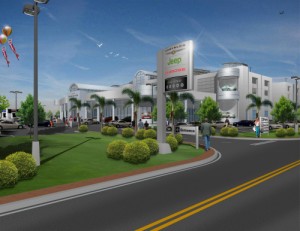
There's growing demand as people realize they need to replace current vehicles.
The nation’s deep recession and uncertain economic future is having a significant impact on what – and how – American motorists are buying. For one thing, consumers are holding on to their vehicles a fair bit longer than they used to. And a large share of buyers would now consider going for a used, rather than new vehicle. If the downsizing trend continues it will have increasingly negative implications for car makers.
While such attitudes reflect the rampant pessimism about the economy, there are some potentially bright spots in the latest survey of vehicle buying decisions by Detroit-based R.L. Polk & Co. For one thing, 72% of consumers say they’d consider buying a product from the Big Three.
The latest results are grounded in the fact that nearly half of those surveyed expect the economy is going to worsen in the coming year. Less than a third are optimistic, predicting things will improve. Yet in terms of the auto industry, “a state of optimism” can also be found in the results, according to Polk’s director of industry analysis, Lonnie Miller.
For the industry, as a whole, the study shows there’s growing pent-up demand, the result of buyers realizing they need to replace their current vehicles. A full third of those surveyed said they plan to purchase a car, truck or crossover within the next year, while 26% expect to buy one within two years.
Industry sales data would seem to support the theory of growing pent-up demand. New vehicle demand fell from 16.1 million, in 2007, to just 13.2 million in 2008, and has been running at an annualized rate of just over nine million, so far this year. That, industry experts note, is actually below the rate at which used vehicles are being scrapped.
But the downside of the survey finds that consumers are holding onto their vehicles for an average 56.3 months, up from just 49 months, six years ago. Meanwhile, a whopping seven out of 10 owners surveyed said they’d consider a used, rather than new, vehicle next time they go to market.
That switch is being buoyed by the increasing availability of so-called Certified Pre-Owned Programs (CPO), where manufacturers take relatively recent vehicles, inspect and repair them, offering like-new warranties and pricing them somewhere between new and conventional used vehicles. According to a new survey by CNW Marketing, the number of new vehicle buyers who opted for CPO products jumped from 8.3%, in 2002 to 13%, last year.
For its part, Polk projects a gradual improvement in the U.S. auto market, but to nowhere near the 17-million peaks seen earlier in the decade. It is forecasting sales will reach only 14.2 million by 2012. As a result, industry planners need to “factor in and recognize a heightened level of consumer anxiety,” while designing future products and planning sales volumes, said Bruce Giffin, corporate market research manager at Polk and co-author of the firm’s new study.
